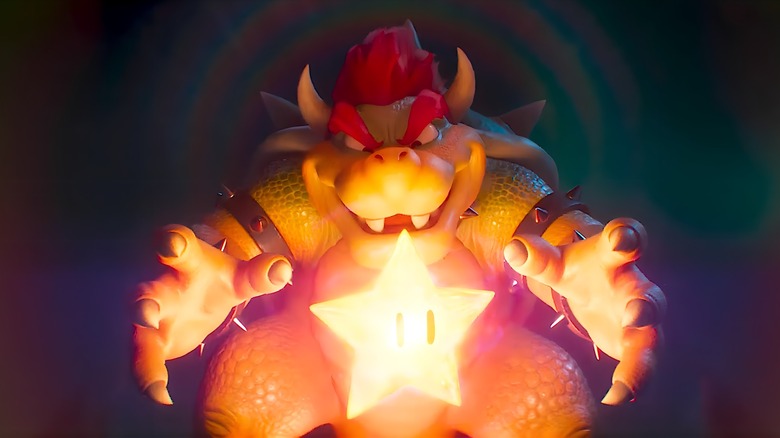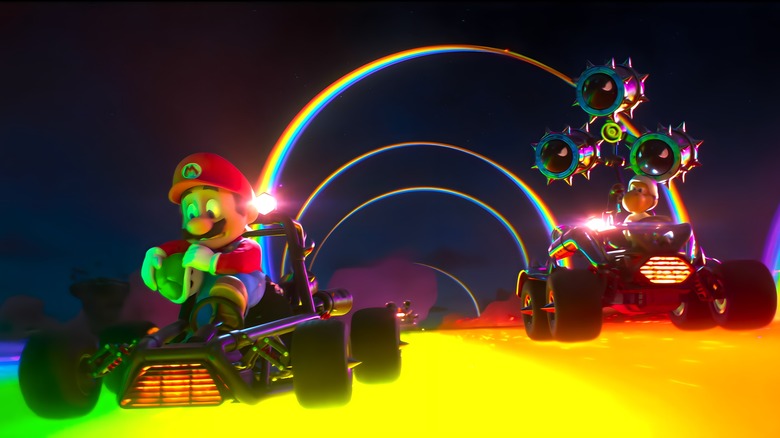Super Mario Bros. Is Worth Seeing For The Score Alone
Almost all of the most disappointing aspects of Nintendo and Illumination's highly anticipated "The Super Mario Bros. Movie" take their time to reveal themselves. The striking visuals, faithful character designs, and thankfully brisk pace may be able to fend off the negative word-of-mouth to which viewers surely have been exposed. It might not be able to keep them at bay for longer than 15 to 20 minutes, but the film is at least not instantly traitorous to your expectations.
There is but one thing immediately, distractingly off from the very first scene of "The Super Mario Bros. Movie" — its egregious use of licensed music. As Bowser (Jack Black) invades his first kingdom to obtain a Super Star, his enemies enter to Tomoyasu Hotei's "Battle Without Honor or Humanity" — a shrugging nod to Quentin Tarantino's "Kill Bill Vol. 1," which made the song famous. Though this moment could be charitably called an homage, both the song and its use are so obvious to the point of being cliched, especially since numerous other films and commercials have beaten them to the punch with this same track to greater impact.
Yet most frustratingly, the soundtrack of the film interrupts what is an effective score from composer Brian Tyler. Tyler's score defiantly soars as the film's saving grace, mixing original motifs from the original "Super Mario" games with elements that make them stand out as cinema-worthy compositions.
Brian Tyler's score is the perfect blend of nostalgia and cinema
For those who may be unacquainted with Brian Tyler's work, the composer is one of the busiest musical artists in Hollywood. Just this year, he has already scored "Scream 6" for Paramount, as well as "Fast X" for Universal.
As someone with a robust background in both film and video game scores ("Assassins Creed IV" and "Far Cry 3," to name a few), it makes perfect sense that he'd craft such a loving score for "The Super Mario Bros. Movie." Throughout the film, Tyler quotes and seamlessly embellishes ingrained motifs from Koji Kondo, the original "Super Mario" composer.
Some may argue that Tyler's score merely stimulates nostalgia in the same shallow way many other aspects of the film attempt to, but its effect is arguably far deeper than that. Wisely, Tyler acknowledges the timelessness of Kondo's work and seemingly knows that no other music would feel as right with this world and its characters. Yet, instead of dropping them in verbatim, Tyler has recomposed and recontextualized them as sweeping, truly epic pieces imbued with all the drama and care missing from the rest of the film's components.
Even after 90 minutes of patronizing plot, it's hard to imagine his triumphant take on the "Super Star Theme" not inspiring at least a little awe, mostly because it does exactly what audiences were aching for the entire film to do: to take something they already loved and make it cinematic. Though it will be unfortunately bogged down by the needless pop hits, Tyler's score for "The Super Mario Bros. Movie" is one of the best film scores of 2023 so far, and deserves to be celebrated as such.

